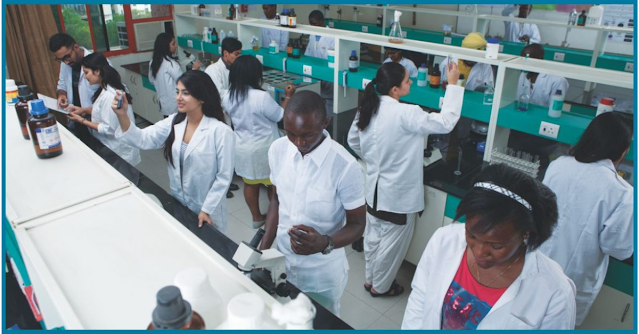How to Become Pathology Technician
Medical lab and pathology technicians are vital to the medical industry because they examine human specimens. For example, graduates of lab technician courses test samples to diagnose or rule out death. If this is your career path, you are in the right place.
This article will explain who a pathology technician is, how to become one, and the skills required. You can also find out which BSc lab technician college in Mumbai to choose.
What does it mean to be a pathology technician?
Pathology technicians who have done lab technician courses after the 12th assist pathologists with various lab tasks. Technicians work in medical labs and are responsible for examining and testing specimens. They also set up laboratory equipment, conduct research and prepare samples.
They also clean the laboratory and store specimens. These tasks will be taught to you as a lab technician.
What is a pathology technician?
Lab equipment used to examine samples
Prepare microscope slides for testing
Clean microscope slides after use
Assist in diagnosing medical conditions
Assist in diagnosing the cause
If necessary, provide medical consultation
In a court case, provide evidence
Analyze tissue samples
Create clinical reports based upon diagnosis information and treatment recommendations
How do you become a pathology technician?
These are the requirements for becoming a pathology technician:
i) Take the medical lab technology course
Employers require pathology technicians at least to hold an associate's degree, such as a course in lab technician. However, students may also choose to pursue other degrees in the health sciences. The most common lab technician programs include math and chemistry, and many also include biology. Additional advanced lab technician courses include anatomy and biochemistry.
Many BSc MLT colleges offer pathology technician programs. These programs include an advanced medical curriculum that provides students with the necessary skills.
ii) Consider a bachelor's degree
Students may decide to pursue a bachelor's or technician program. You can land great internship opportunities if you are a good performer and attend your degree. You can develop great laboratory skills by working in real life. You can expect to learn molecular pathology or forensics classes in a laboratory technician program. It is possible to expect to spend time in a laboratory setting and learn the research skills required of a medical laboratory technician.
iii). Study for and pass the licensing exam
Before starting to work in a medical organization, you must pass certain entrance exams and tests. Along with their training as lab technicians, there are many medical certifications that lab technicians can pursue. The certification requires that you continue your medical laboratory technician education every three years.
iv) Apply to an internship or entry-level position during your course as a lab technician.
Many students begin their careers by working as interns or in entry-level positions. This is a great way to gain valuable work experience. You learn in real-life situations how to perform and operate as a fresher. In addition, your resume will benefit from the internship experience. Don't miss out on internships during or after your degree.
Learning never ends. You must continue learning as a professional, particularly in the medical field. It is important to keep learning and improving your skills. As you move up the career ladder, your job responsibilities will continue to increase. Be ready for any job advancement in your career.
v) A typical work environment for a pathology technician
Pathology technicians spend most of their time under a microscope. This job involves preparing biopsy samples and creating records based on those findings. Although lab technicians have a set schedule, they may need to work overtime or shifts depending on the company or situation. A few medical lab technicians work in health science centres and train new employees.




After completing their lab technician training, pathology technicians assist pathologists with a variety of lab tasks. Examining and testing samples is the responsibility of technicians who work in medical labs. They also conduct research, prepare samples, and set up lab equipment. They store specimens and clean the lab as well. As a lab technician, these tasks will be taught to you. To learn more please visit itm.edu
ReplyDeletePathology technicians assist pathologists with a range of lab tasks after completing their training as lab technicians. Technicians who work in medical labs are responsible for inspecting and analyzing samples. Additionally, they set up lab equipment, prepare samples, and conduct research. They also keep the lab clean and store the specimens. You will learn how to perform these duties as a lab technician in bsc medical lab technology. To learn more please visit itm.edu
ReplyDelete